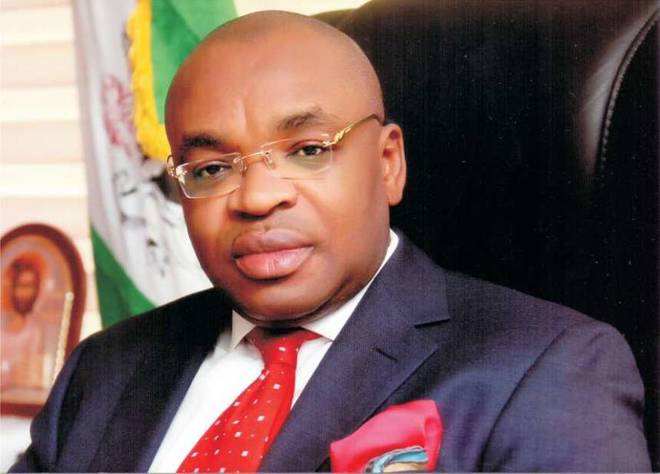Akwa Ibom state governor Udom Emmanuel has urged federal government to sign off on an approval to allow the state government to build and maintain a deep sea port.
Emmanuel said the project would recruit a minimum 5,000 youth during construction, helping the economy and decongesting gridlock at Apapa port in Lagos.
“We have a natural draught of 7.3 metres. All we need is approval. We already have investors who are ready,” Emmanuel said in Abuja.
“If federal government can help us with the approval, we can go a long way.”
Emmanuel voiced the urge at the launch of a biography in honour of late Clement Isong, a former governor of the Central Bank and one-time governor of Old Cross River State, whose face is pictured on the N1,000 note.
He donated N10 million to purchase 1,000 copies of the biography to be shelved in libraries across Akwa Ibom.
He said industrialization was key to getting youth out of unemployment and removing the frustration that millions of jobless young people feel.
Emmanuel noted Akwa Ibom aimed to become a “hub of services where people can connect to the economy of the rest of the subregion.”
“The major gateways to industrialize any place on earth is what God has created naturally—air, water, road,” said Emmanuel.
“Except you fix those three, you are not creating access. Today, Dubai is what it is because Emirates flies to over 100 destinations. Even if you are not going there, you must enter Dubai.”
Former governor of Akwa Ibom, Victor Attah, said he had not “real, personal contact” with Isong, but studied him to understand his motivation.
“This is a man who saw us through the civil war without borrowing,” he said, in reference to when Isong became CBN governor in 1967 until 1975.
He governed old Cross River from 1979 to 83, a period during which he was credited with starting the industrialization of Cross River, between Akwa Ibom was created.
The Clement Isong Foundation, named after him since he died in 2000 was established to advance relevant public discourse, economic research and prison reforms, considering his experience of the prison system during his period of incarceration as a political prisoner, according to Akpan Ekpo, chairman of the foundation’s board of trustees.

 Join Daily Trust WhatsApp Community For Quick Access To News and Happenings Around You.
Join Daily Trust WhatsApp Community For Quick Access To News and Happenings Around You.


